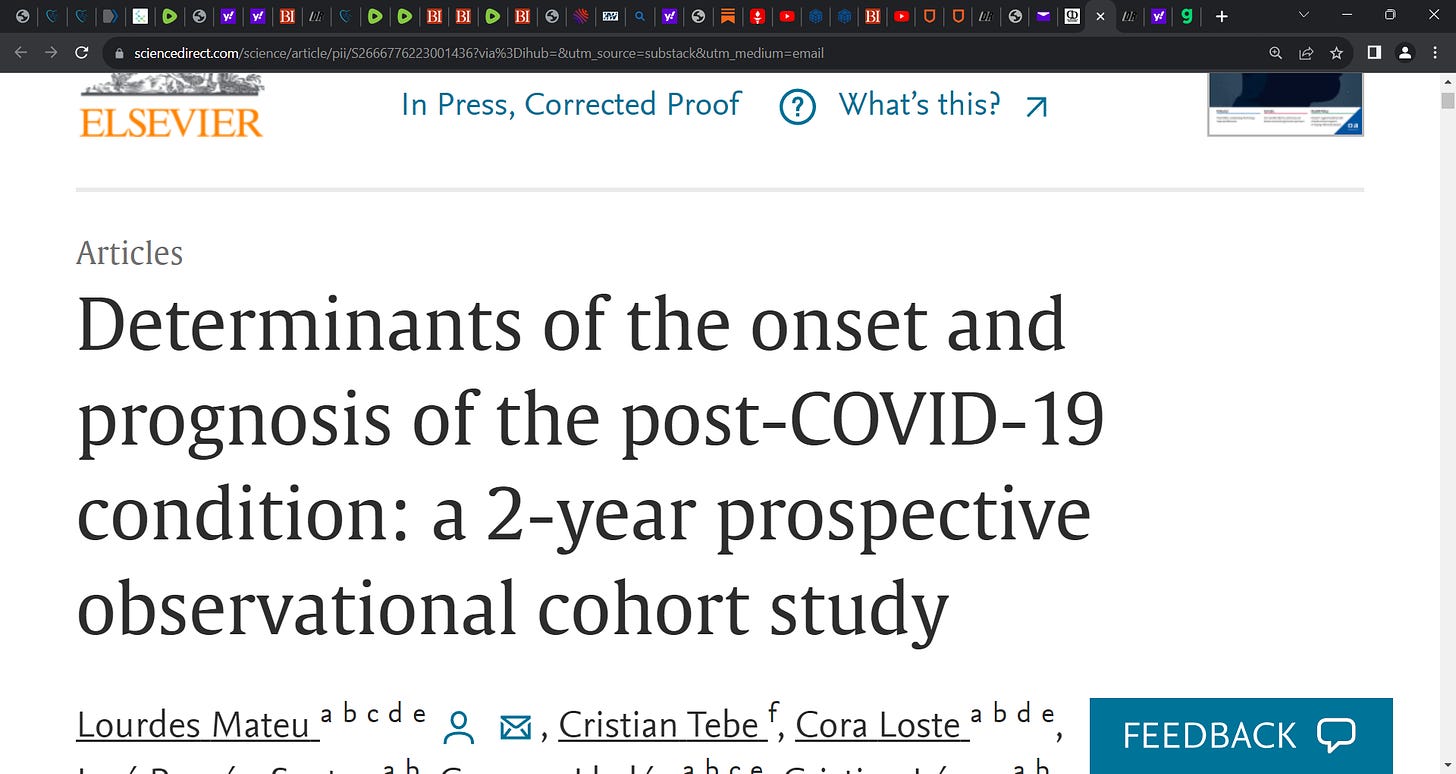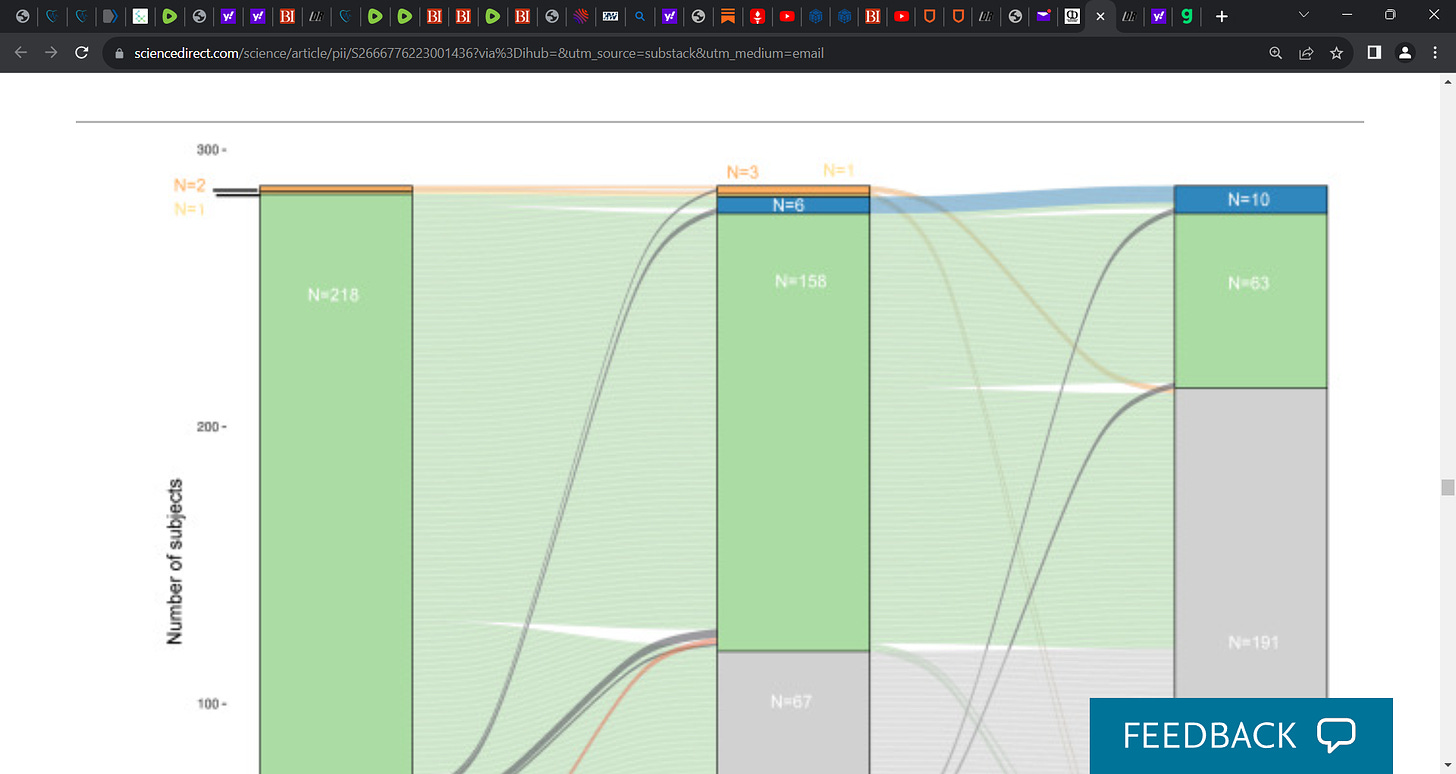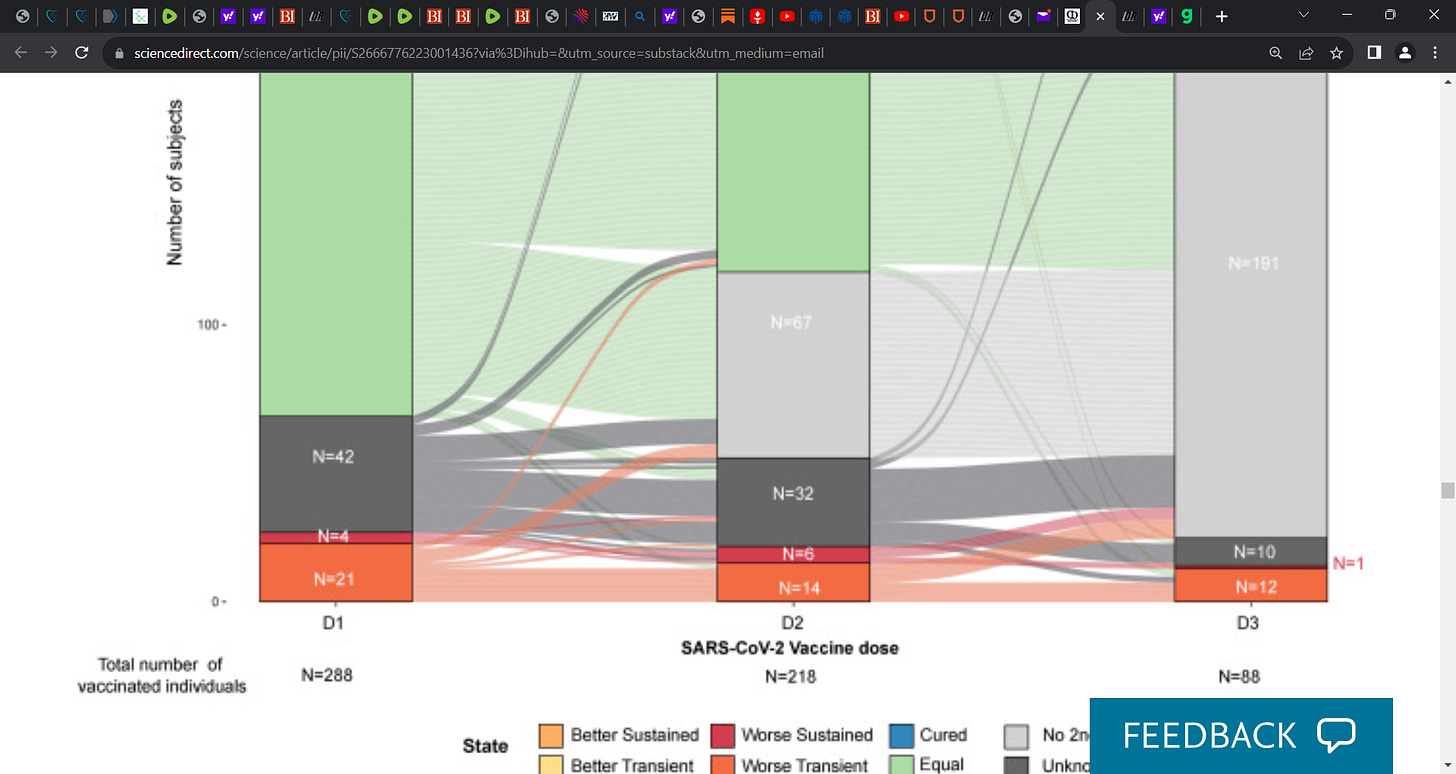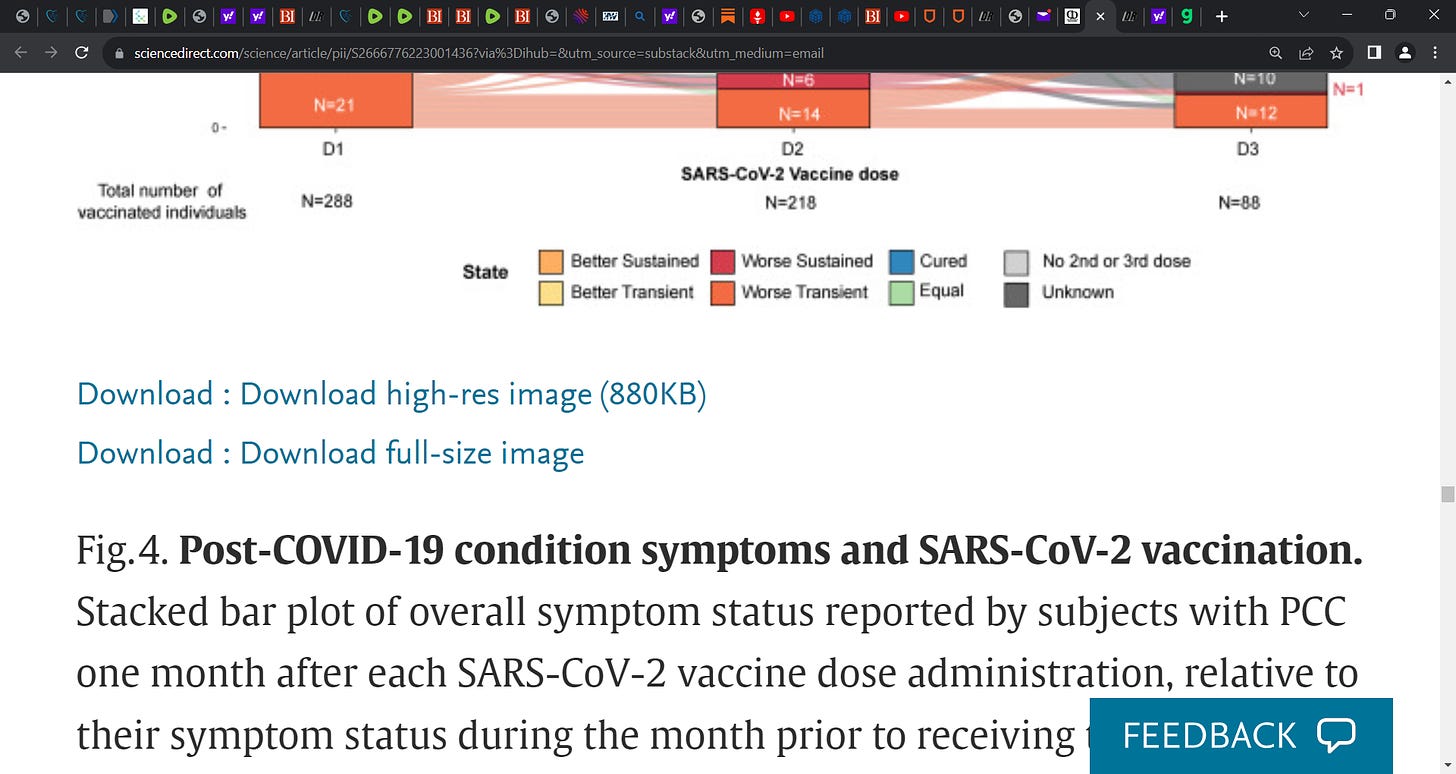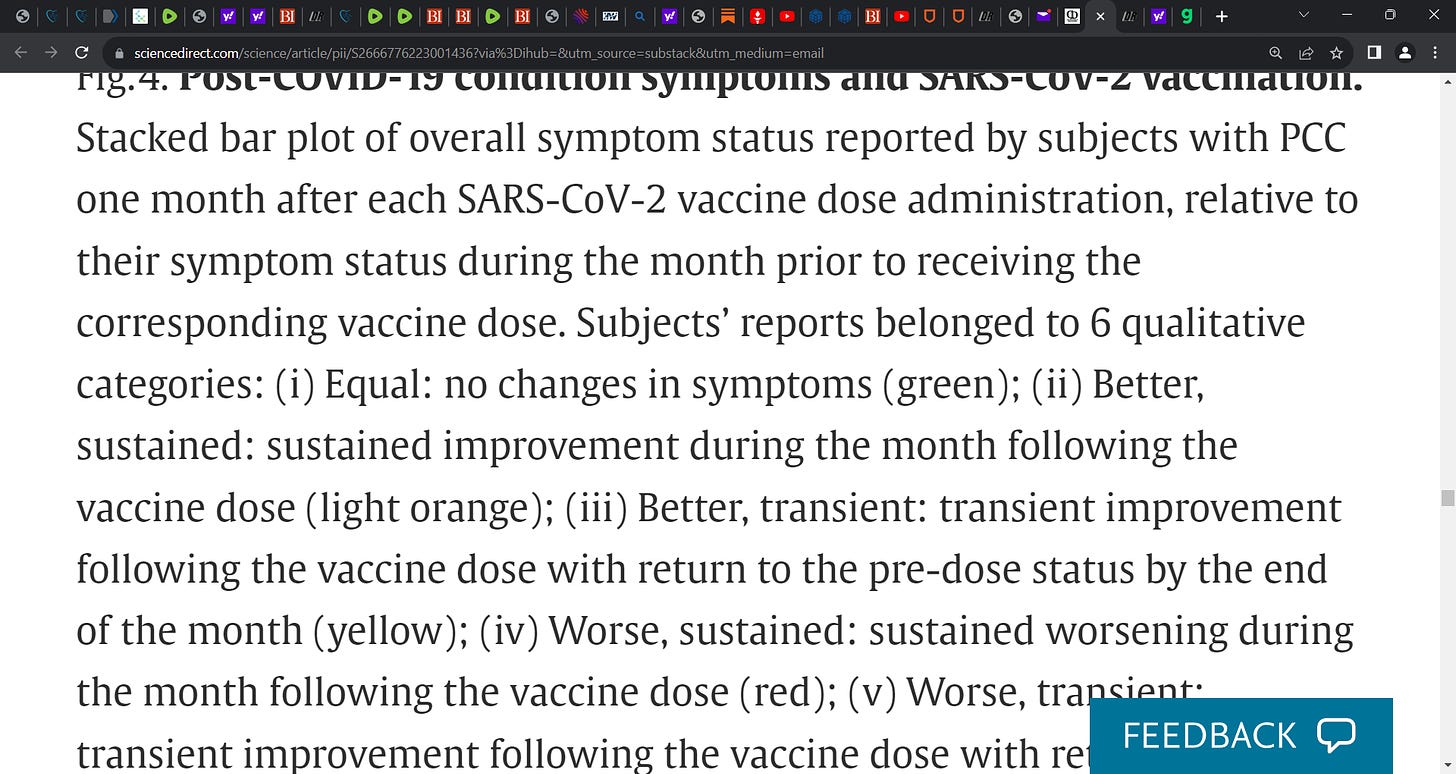Mateu et al's recent paper shows the worsening impact of repeated mRNA technology booster vaccination on LONG-COVID symptoms & how it is driving symptoms; McCullough unpacks in substack below
by Paul Alexander
Determinants of onset & prognosis of the post-COVID-19 condition: 2-year prospective observational cohort study; why did Mateau et al. not include vaccine as a predictor in their regression model?
The authors fail to consider vaccine status in their regression model predicting LONG-COVID and the question is why? McCullough makes a valid point here.
‘I have seen patients in my practice become progressively more ill with fatigue, weakness, hair loss, headaches, effort intolerance, sleep disturbance and in some cases cardiac and neurological symptoms with progressive mRNA injections every six months. Meanwhile the Biden Administration US HHS National Action Plan on Long COVID-19 has been running a billion dollar research plan with no consideration that the vaccine could be the cause of symptoms. The medical literature is loaded with papers on long-COVID ignoring the fact the same patient groups have all been taking COVID-19 vaccines. In essence, there is a global coverup of vaccine injury syndromes as “long-COVID.”
Mateu et al studied 548 individuals, 341 with long-COVID, followed for a median of 23 months (IQR 16.5–23.5). With continued vaccination, only 26 subjects (7.6%) recovered from long-COVID during follow-up; almost all of them (n = 24) belonged to the less symptomatic cluster and importantly the syndrome finally lessened when they dropped vaccination. The authors fail to include vaccination in their multivariate models, thereby missing this effect in the patient population. However, they inadvertently show the impact of COVID-19 vaccination on persistent long-COVID in a figure shown in the Lancet manuscript.
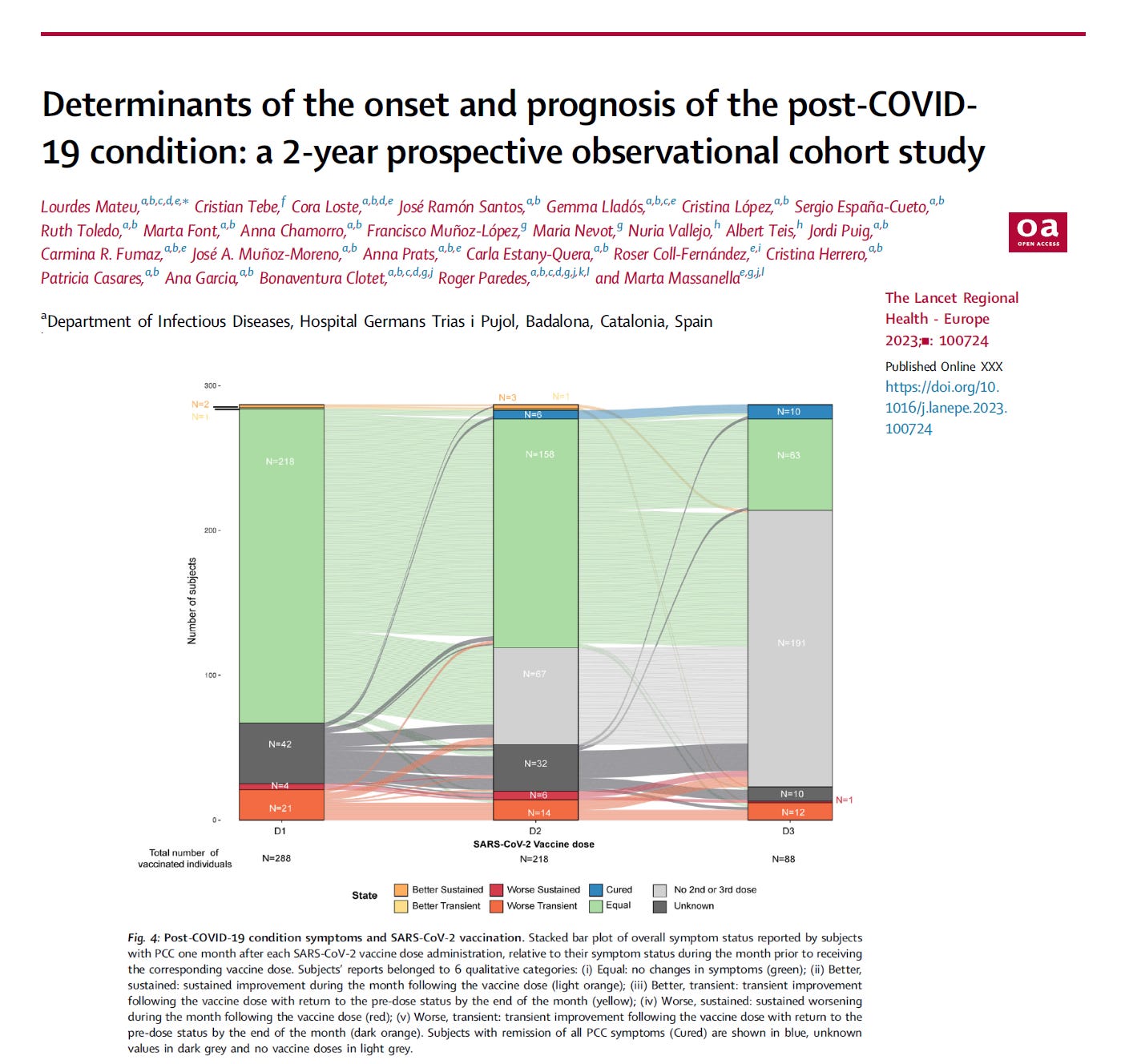
No wonder people are sick with long-COVID! The vaccines install long-lasting genetic code for the Wuhan SARS-CoV-2 Spike protein which deposits in tissues and organs and directly causes cardiovascular, neurological, thrombotic, and immunologic disease which is being blamed on “long-COVID.” Thus an important part of treatment for long-COVID is to stop ill-advised every six-month mass vaccination.’

